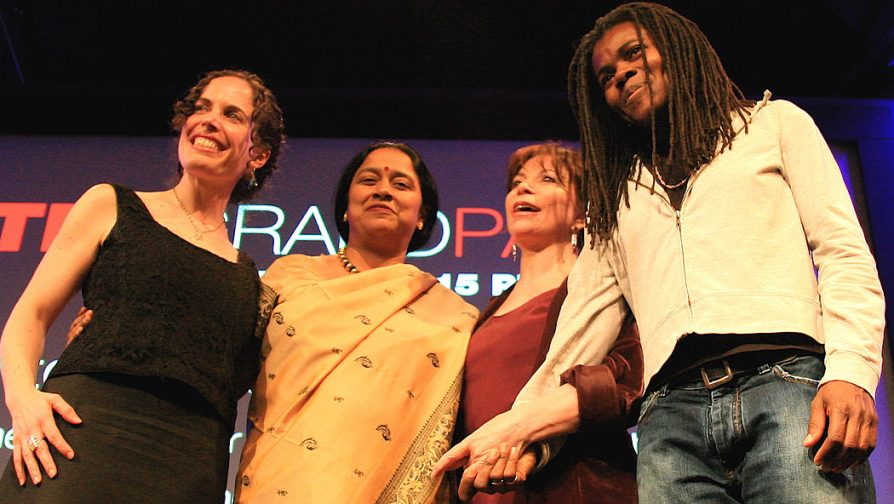Allende, Isabel
“Often I had no alternative but to work hard in order to survive and protect my family. I was a political exile and then an immigrant. That makes one strong.”
Profession: Journalist and Writer
Country of Origin: Chile
Country of Asylum: United States of America
Country of Transit: Venezuela
Date of birth: 2 August 1942
“Often I had no alternative but to work hard in order to survive and protect my family. I was a political exile and then an immigrant. That makes one strong.” This is how Chilean writer Isabel Allende answered when asked what gave her the drive to achieve. Her novels have become world-famous modern Latin American classics.
She went into exile after her uncle, Chilean President Salvador Allende, was overthrown in the military coup led by General Augusto Pinochet on September 11, 1973. Isabel had been receiving death threats and learnt that her name was on a military blacklist. She fled to Venezuela with her husband and two children, arriving without a visa or a job, but managed to continue her career as a journalist by contributing to the Caracas newspaper, El Nacional.
In 1981, when she received news that her 99-year-old grandfather was dying, Isabel began writing him a letter to make herself feel closer to her family and the home she left behind. The manuscript was to turn into her first and best-known novel, “The House of the Spirits”.
The book tells the story of a family in an unnamed Latin American country that bears an unmistakable resemblance to Chile. The matriarchal Clara del Valle is gifted in strange ways with telepathy and an ability to see into the future. The writing draws on the Latin American tradition of “magic realism”. The family lives through turbulent times and, like Isabel’s, is caught up in the politics of the day. The New York Times described “The House of the Spirits” as “a spectacular first novel”. The Washington Post acclaimed it as “mesmerising”. Other novels include “Eva Luna” and “Of Love and Shadows”.

Isabel Allende (in red), 2007, at TED in California, flanked (L to R) by Susan Cohen, Lakshmi Pratury and Tracy Chapman. Wikipedia
In 1985, Isabel went to the United States as a visiting professor of literature. She met her second husband and now resides in San Rafael, California. She is involved in more than 20 non-governmental organisations, including Madre, which provides support for women and children who have been abused, and Canal Community Alliance, which assists ethnic groups. Her own foundation, the Isabel Allende Foundation and Paula Scholarships, was set up at the request of her daughter, Paula, who died in 1992. It allocates scholarships to underprivileged women and children.
In 1990, when democracy was re-established in Chile, Isabel returned after 15 years of absence to receive the Gabriela Mistral Award, a prestigious national prize.
